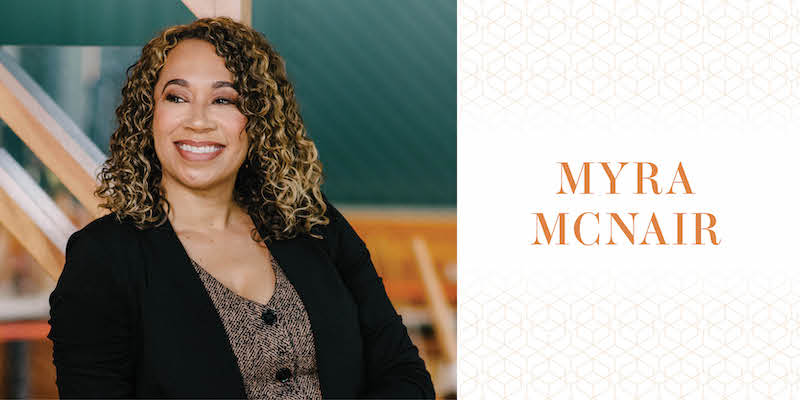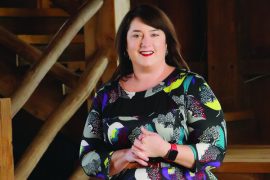By Candice Wagener | Photography by Hillary Schave
We’ve come a long way in our perceptions of mental health, but pervading stigma still exists. For the Black, Indigenous and People of Color (BIPOC) population, extra layers are piled on in the form of cultural and language barriers, mistrust due to past racial trauma and the inability to find a provider who looks like them.
Wanting to change this narrative, Myra McNair founded Anesis Therapy as a sole practitioner in 2016, and she’s been working tirelessly since to provide the BIPOC population with mental health services they feel comfortable with and diversifying the therapist spectrum with a staff that is multilingual and multicultural.
“I’ve worked at places that said we cannot find people of color to do certain roles,” says McNair. “That’s not true. Madison has Black and brown leaders, and if we’re dedicated to diversity, we have to be willing to see leaders that we already have and also recruit new ones to our city.”
Friend and former colleague Barbara Simpson says, “Myra is a visionary. She has a heart for her community and she is dedicated to elevating the quality of life both for those seeking services as well as for those rendering services.”
McNair understood early on the impact of lifting others up by watching her mother run a nonprofit providing transitional housing and support to homeless youth. Before opening Anesis, McNair provided premarital counseling alongside her husband, a minister at a local church. Witnessing how many mental health issues were “swept under the rug” motivated her to launch Anesis.
“If you have a mental health issue, you either just pray it away, don’t deal with it, don’t look at it or you’re ‘crazy’ if something is wrong,” says McNair. “I think a lot of communities can relate to that, but I think there’s just another layer within the Black community of unspoken rules of not getting help.”
Celebrating its sixth anniversary, the need for what Anesis offers has become increasingly apparent. With nearly 50 therapists and upwards of 1,500 clients served, the practice has expanded enough that McNair purchased her own commercial building with plans to move into the space in January 2022. They’ll continue to offer a free, drop-in clinic at Mt. Zion Church on Tuesdays from 10 a.m. to 2 p.m., with the goal of eventually adding more hours.
McNair is also looking forward to Anesis bringing on its first BIPOC resident from the UW Psychiatry Department, which was the result of persistence and hard work . Having a BIPOC resident able to prescribe medication is significant, considering the general prescriber shortage and a glaringly low number of BIPOC prescribers in the Madison area. (There is an even deeper stigma and mistrust around medication for BIPOC individuals, says McNair.)
Additionally, Anesis sets itself apart by functioning like a community clinic from a client aspect (clients come from all different socioeconomic backgrounds), but runs like a private practice for the clinicians, offering competitive wages, valuable training and mutual respect.
“Collaboration is such an important part of Anesis and how we run,” says McNair. “If staff aren’t valued and they’re not cared for, then our clients aren’t [either].”




